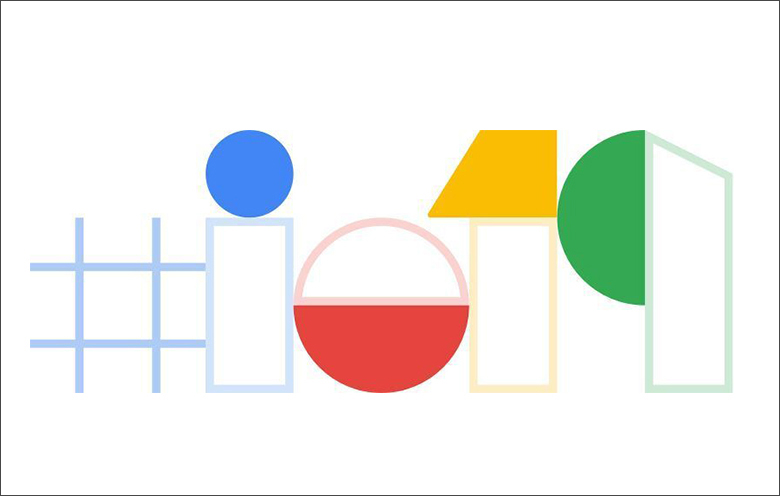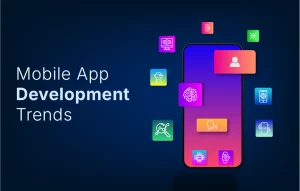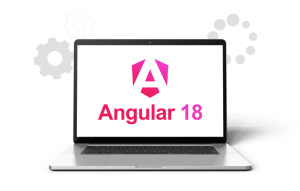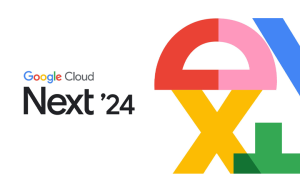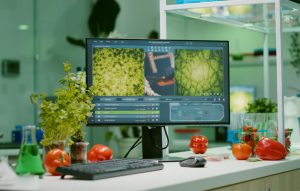This is a continuation of our first blog post on Google I/O 2019. You can read the first part here.
Google made some interesting announcements in I/O 2019 related to AR integration in Maps and Search, making technology accessible for everyone and providing faster updates. Let’s have a look at these announcements in detail:
AR navigation in Google Maps and the incognito mode
At the I/O event, Google also launched the Google Map AR walking directions for all their pixel smartphones. The feature helps you to get real-time navigation through the phone’s camera. The AR navigation is quite useful for unfamiliar surroundings and gives clues of where to head. However, According to the feedback received these AR walking directions are not well suited to use as a primary navigation method.
Another update was regarding the privacy for the users while accessing Google Maps. Users will be able to select an incognito mode for Google Maps just like the incognito window provided in Google Chrome. The mode will be rolled out later in this year.
Project Euphonia
Google also launched an initiative named Project Euphonia with an aim to make technology accessible for people with disabilities. The focus will be to collect more data from people with impaired speech, which will help to reduce AI bias and make Google Assistant respond efficiently to people with voice impairments.
The company is also working on new interactive AI systems to recognize gestures and facial expressions of people. These systems will help the disabled to use smart products like home speakers and lights with ease. They also released a prototype name Live Relay which uses on-device speech recognition and text-to-speech conversion to help people with hearing and speech disabilities during the call. The feature allows users to type into their phone that converts to speech at the other end.
New Play Store features
With new Play Store features, developers can control which parts of their app needs to be delivered when installed. This will help them to limit the size of their apps. Another feature is regarding the app update. The new API provides two approaches for in-app updates. One named immediate flow where users need to update the app before they can get access to the app. The second is named as the flexible flow that allows for an app update in the background while users are accessing it. Testing has also received an upgrade as developers can now swap test builds via internal app sharing. There is no requirement for any keys or codes.
Google Search
At the I/O event, Google had its share of updates and features for its signature product: Google Search. They have announced that they are going to add augmented reality features to their search. Users will be able to not only search and view 3D models but also be able to put them in the real world, all using AR technology.
Addition of “Full coverage” news, incognito feature and allowing users to search for the podcast and listen to them directly from the search are among the other announcements made for Google Search during the event.
Google’s “next-gen” Assistant
The next generation of the Google Assistant will be completely on-device, thereby promising increased speed, privacy and overall user experience. A driving mode of the Assistant was also showcased at the event.
Duplex on the web
Google is updating Duplex from being a voice-only-service to providing support for the web using the information Google already has about the user. The updated Duplex will help users to make bookings, buy movie and travel tickets and fill in web forms by using data available on Gmail, Calendar and Chrome.
Google Lens
Google is adding manual filters at the bottom of the camera interface that will allow users to enter a specific mode. The update Lens will help users to find the famous dishes of a restaurant by pointing the camera to its menu and calculate the tip by snapping a check. Moreover, Lens is bringing AR to print materials as well that will enable users to get step-by-step instructions for cooking by simply hovering the camera over the special pages. It can also translate text into 14 languages on-device. The company also announced that Google Lens is coming to the Google Go app for international users and for lower-powered devices as well.
Developer Updates
Here are some developer-focused announcements made at Google I/O 2019:
- Google announced Kotlin as the primary programming language for Android and that in the coming years Android development will become increasingly Kotlin-first.
- CameraX Android Jetpack library released to provide consistent camera experience across devices
- Reactive style UI toolkit for Android named Jetpack Compose was launched at the event. The toolkit helps to simplify UI development by combining a reactive programming model with the conciseness and ease-of-use of Kotlin.
- Two architecture components namely LiveData and Lifecycles with coroutines were released to support common one-shot asynchronous operations.
- Significant improvements made to Android’s Neural Networks API
- Developers will now be able to build games for Google’s smart devices like the recently announced Nest Hub Max.
The final say
These were the top announcements made by Google in their 3-day long I/O event. Our developers are closely exploring all these announcements. If you are interested to know more about how these announcements can be beneficial for your business, then contact our experts.


